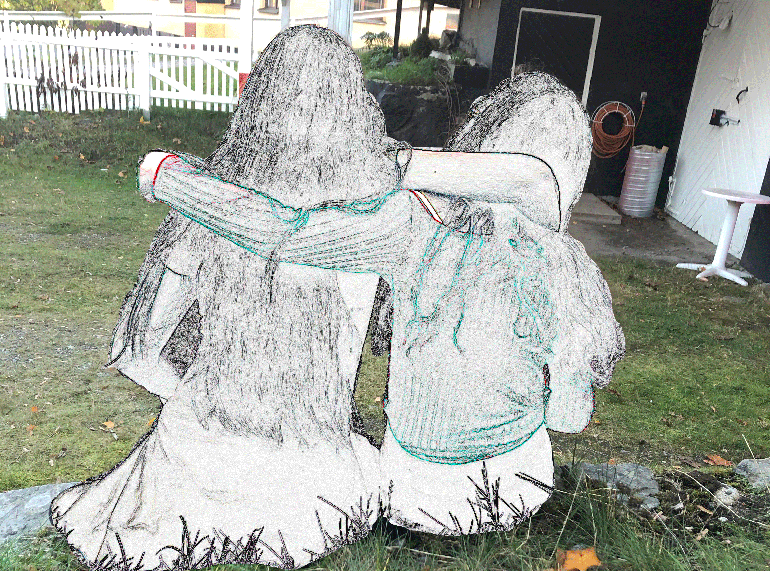
Case "THE GIRLS at Tjejhuset" - a study on creative practices and their potential as tools for engaging specificity, situated knowledge production and creating futures.
On 8 March 2021 "THE GIRLS at Tjejhuset" was launched. It is an output of a more than three years long journey which started in 2017 with my becoming engaged in doing volunteer work at the youth community center Tjejhuset in the municipality of Södertälje. It is a project where creative, collective, co-owned and collaborative processes were essential prerequisites for it to become "real" - where the young people involved willingly chose to participate, and by extension took ownership of the project. As an enterprise "THE GIRLS at Tjejhuset" became a history book which testifies to the lives and everyday of a marginalized group in our common society, 10-12-year-olds.
A case study, "THE GIRLS at Tjejhuset" provides perspectives to the PhD research project, "Exploring how to manifold historiography", and its inquiry of how young people's knowledges and experiences can materialize and become integrated into futures. Correspondingly, the PhD project is concerned with perspectives on democracy, social equality, and broadening participation. Integrated are questions relating to the existing gap between, at one hand all children in Sweden having creative subjects as compulsory in elementary school, and on the other hand the narrower representation of a relatively homogeneous group of students in higher education within artistic practice. Considering how to enable a broader diversity of voices through creative practice, the PhD research is also about discussing whether social power structures could be affected if a diversity of our future citizens would develop effective tools to sharing their own issues.
The research is underpinned by theoretical perspectives that are concerned with intersectionality, critical pedagogy, and critical ethnography. Explorations are based on youth participatory action research and focus on creative practices that are beyond syllabi, institutions, economic-, political-, social- and ideological interests. Likewise, the research project will involve and connect various actors around a conversation on the learning behind formal curricula, but with the school and other actors such as the municipality and associations, as partners.
Miro Sazdic Löwstedt was born in former Yugoslavia and raised in Södertälje, Sweden. She received an MFA from Konstfack in 1998. Her work has been exhibited and published internationally and she has organized several international workshops, exhibitions and symposia. Parallel to her artistic practice she is involved in collaborations and pro bono projects focusing on children and young people in Södertälje. Sazdic Löwstedt is based in Stockholm, where she until 2020 held a position as senior lecturer and head of the Bachelor programme Ädellab at Konstfack.
Principal supervisor: Anette Göthlund, professor in Visual Arts Education (IBIS) at Konstfack University of Arts, Crafts and Design.
Assistant supervisor: Meike Schalk, associate professor / docent in urban design and urban theory at KTH Royal Institute of Technology
Admitted to KTH Royal Institute of Technology
Project period: 2019-2024